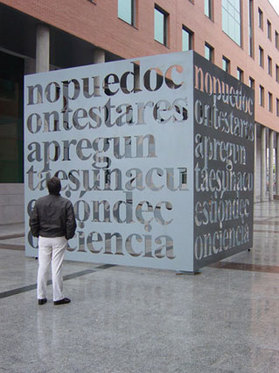This is an archive of the ArtCat Zine, 2007-2009. Please visit our new project, IDIOM.
Christopher Hsu on Art and Work

This week on Paper Monument's website Christopher Hsu contemplates the contemporary artist's relationship to work, grounding his meditation in the English-speaking artist's multivalent and frequent deployment of the word. The artist at work at once inhabits both the ideal sphere of gratuitous free action -- itself compelled by the art worker's very way of being in the world rather than some sort of compensatory system -- and at the same time a slightly distorted leftist legacy of creative or intellectual production aligned with its material or industrial counterpart. Even my own language here belies the pervasive entrenchment of this model -- how does one describe something as usefully ambiguous as cultural production without resorting to the language of industry?
Benjamin frames the affinity of the intellectual or the artist for the work of the proletariat class as a politically strategic relation, but we see its prototype even earlier when Marx postulates in the Theses on Fuerbach that the "philosophers have only interpreted the world, in various ways; the point is to change it." To change the world is to work -- to move from contemplation, to action, transforming the material, data, or social relations undergoing that action. The bifurcation of art from craft meanwhile -- of expert work and art work -- signals a means of action polar to the means of that action's intended effect. The contemporary artist, Hsu suggests, in her aggressive affirmation of her life's work, obfuscates the more deeply rooted and deliberate relationship to leisure at the core of her being in the world.
ZINE
HOME
TIPS / COMMENTS
CATEGORIES
CONTRIBUTORS
- Greg Afinogenov
- B. Blagojevic
- Adda Birnir
- Susannah Edelbaum
- Julie Fishkin
- Paddy Johnson
- Jessica Loudis
- Christopher Reiger
- Andrew Robinson
- Peter J. Russo
- Blythe Sheldon
- S.C.Squibb
- Hrag Vartanian
